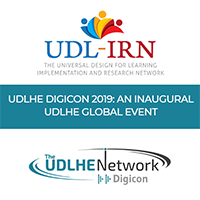As a means of supporting our growth and knowledge in the area of universal design for learning and inclusive course design, over the last my ID2ID colleague and I read and discussed the book, Supporting College and University Students with Invisible Disabilities by Christy Oslund as our second part of the professional development requirement.
We both enjoyed the book and found it helpful in our practice. The book opens by dispelling myths and then sharing about the legalities around meeting the needs of those with a disability. The next five chapters were most useful, helpful, and illuminating for us as each shared a different invisible disability. These chapters included background information, co morbid disorders and support recommendations for each disability. These chapters helped to illuminate the challenges that those with each disability face and tangible recommendations for supporting those with a particular disability. The last few chapters launched into a discussion around universal design, universal design for learning, and consideration for administration. While informative my colleague and I did not find this section to be as helpful as the last. The recommendations here were a bit too general to be helpful.
In my work at Lawrence University this work will be a great resource for instructors helping them to better understand the students they teach. As we embark on a journey toward inclusive excellence the information in this book will help instructors exercise compassion toward students with a particular disability as well as have a better understanding of the legalities around disability. we plan to use this book in a faculty reading/discussion group in a near future term.
